Claiming Your Gifts as an Empath
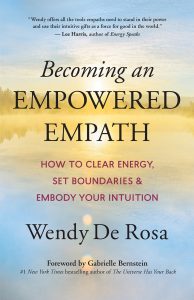 An Excerpt from Becoming an Empowered Empath by Wendy DeRosa
An Excerpt from Becoming an Empowered Empath by Wendy DeRosa
Do you feel other people’s energy — whether they are stressed, anxious, angry, or in need? You may even sense that you absorb their energy. When you enter a room, you can pick up on the energy present, how people are feeling, or what might be happening. You’re likely sensitive to what’s occurring around you — including injustice, political divisions, the effects of climate change, the danger of extinction of animals, and more — and to the pain of others in your community and in our world. You also sense the powerful energies that are emerging to bring about change.
This is the experience of living as an empath, a person who is highly sensitive and, as a result, feels and absorbs other people’s energy, emotions, and even physical symptoms. Empaths experience their world through their intuition and a felt sense of people and situations. They might not be able to define why they feel the way they do, but they sense that they are impacted by other people’s energy.
Empathy has become a popular topic recently, much of it inspired by the work of researcher and author Brené Brown. Empathy is a person’s capacity to understand or relate to what another person is experiencing. Brown describes empathy as a skill that can bring people together and make them feel included.
While it is natural to feel the energy around you and to connect with other people’s emotions, problems arise when you absorb these energies or take on these emotions as your own. You can likely recall an experience when you moved from attentive listening (hearing how someone is feeling about an experience) to taking on someone else’s experience (feeling it as if it were happening to you). People generally love talking to empaths because of this. They feel so much better and describe themselves as “relieved” afterward. That’s because the empath in their life just took on dealing with their problems for them!
Problems arise from being overly empathic. This experience of taking on the feelings and experiences of another person as your own can be described as “merging” with another person. It is helpful to imagine empathic nature on a spectrum: on one end, empathy and understanding operate with detachment, and on the other, being empathic and intuitive leads to merging.
For empaths, merging occurs because they are not fully present, or “inhabiting,” their own energy body — particularly the lower body and lower chakras, energetic centers within the body. (When I refer to “energy” or “energy body,” I am referring to the energetic field that is in and around your physical body. In the next chapter, we’ll discuss in detail the subtle energy body and the chakras and how they relate to our empathic intuition.) Not being fully present in your lower body area leaves a vacancy for other people’s energy to take over. Some of the physical and emotional symptoms of taking on other people’s energy include stress, agitation, depletion, and feeling overwhelmed and overstimulated. Depression, digestive issues, migraines, allergies, and other physical illnesses may also manifest. This pattern of taking on other people’s energy often starts in childhood, before one learns to maintain emotional or energetic boundaries. Perhaps as a child you were told that you were “too sensitive”? (And maybe you still hear this today?) You may have learned to take on other people’s energy as a way to help them or to calm them down. In fact, you likely developed this impulse to merge with others as a way to seek love and intimacy and to keep yourself safe.
Being overly empathic is common when a child is raised in a household with unclear boundaries, projected emotions, suppression of self, or no feeling of safety or belonging. Children learn to survive by prioritizing other people’s needs and energy while disconnecting from their self and their own needs.
These survival and coping mechanisms take root in the first chakra area of the body and, once formed, create energetic imprints in your body that can lead to unhealthy patterns in a number of areas in your life — your health, your relationships, your work, and more. Largely unconscious, this response becomes ingrained as a default setting, influencing your worldview and how you interact with family, friends, and coworkers. You may not intend to absorb the energy around you, but your subtle energy body is responding in the only way it knows to keep you safe. In addition, Western culture often views sensitivity as a weakness or a liability, so as children we’re taught to avoid, dismiss, or suppress our feelings and needs, ultimately invalidating our intuitive sense. This causes us to disconnect from ourselves and our inner guidance and creates a lack of trust in our instincts and intuition. The disconnection is not just mental, emotional, or energetic; it is spiritual as well, sometimes referred to as being disconnected from one’s Soul.
Though you may have tried different methods to heal these patterns — perhaps therapy, workshops, self-help books, or various spiritual practices — you likely found that these tools alone were not enough to shift lifelong patterns or to help you set and hold healthy boundaries.
To stop taking on other people’s energy requires not just an understanding of your physical body and symptoms but also an understanding of your energetic body. The lower chakras are the main power centers in the energetic anatomy. They house the primary conditioning for every human being’s survival imprints, coping mechanisms, personality traits, and personal power. They are responsible for how you relate to yourself, others, and the world. A “reparenting” of the lower chakras (nurturing yourself and inhabiting your energy body) will help you shift from being overly sensitive to empowered.
These lower chakras are closely tied to the empathic power of intuition, feeling, and self-expression. Throughout Western culture and history, these aspects have been subjected to collective and societal shaming. The shaming of sensitivity, vulnerability, truth, emotions, and creativity has limited the power of our true selves, causing us to suppress our true feelings, true voice, true being, and true sense of belonging.
Empaths need not be victims to the world around them. I know it can seem that way when you are feeling everyone’s energy, but when you feel triggered by another individual’s energy, think of it as an opportunity to address the deeper layers within you that need to be seen, healed, and brought into alignment. The good news is that empaths are awakening and learning about their empathic nature so they can heal their early-life wounds and fully express their gifts.
Your gift as an empath is that you feel what’s true. You are connected to the subtle and can see beneath the layers. By expanding your capacity to embody your empathic gifts, you become uniquely equipped to show others how to experience their authentic feelings and help heal the planet. This is a critical step at this time: we need empowered empaths who can give voice to what is unspoken, bring to light what is hidden, and heal what is suppressed.
With the proper framework, empaths can transform the effects of their past and come to understand the true nature of their empathic power. You will finally be able to show up with your gifts in your relationships, work, and other parts of your life. You will find that it’s possible to feel nourished and to thrive as an empowered empath. You will be able to restore your energetic boundaries and align with your true light and power. This is a most profound experience of self-love and is essential for establishing an uncompromising and loving connection with yourself, regardless of external circumstances or challenges and throughout your daily activities and interactions with others.
It is time to fully express and embody your empathic intuition and power.
# # #
 Wendy De Rosa is the author of Becoming an Empowered Empath. The founder of The School of Intuitive Studies, she has been helping people develop intuition and experience personal transformation for over two decades. Visit her online at http://www.SchoolOfIntuitiveStudies.com.
Wendy De Rosa is the author of Becoming an Empowered Empath. The founder of The School of Intuitive Studies, she has been helping people develop intuition and experience personal transformation for over two decades. Visit her online at http://www.SchoolOfIntuitiveStudies.com.
Excerpted from the book from Becoming an Empowered Empath. Copyright ©2021 by Wendy De Rosa. Printed with permission from New World Library — www.newworldlibrary.com.










 Shweta is a
Shweta is a 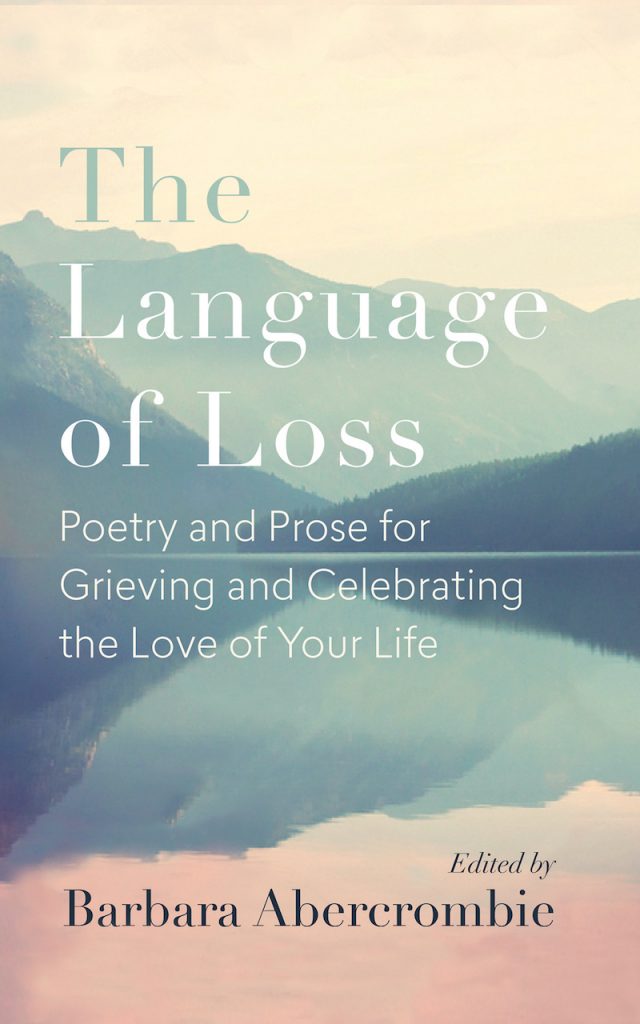
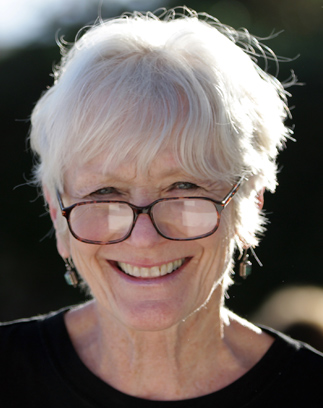
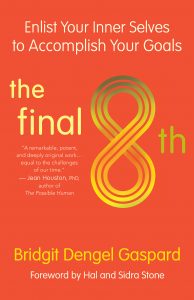 An excerpt from The Final 8th
An excerpt from The Final 8th
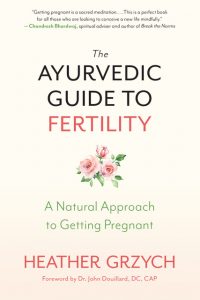 An excerpt from The Ayurvedic Guide to Fertility
An excerpt from The Ayurvedic Guide to Fertility
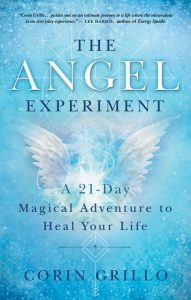 An excerpt from The Angel Experiment by Corin Grillo
An excerpt from The Angel Experiment by Corin Grillo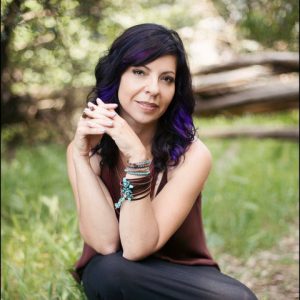
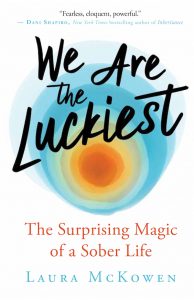 An excerpt from We Are the Luckiest by Laura McKowen
An excerpt from We Are the Luckiest by Laura McKowen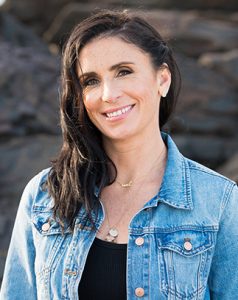 Laura McKowen is the author of
Laura McKowen is the author of